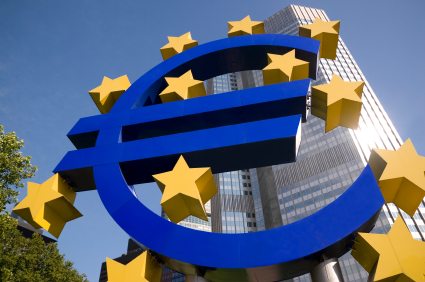Another ECB policymaker, Frenchman Benoit Coeure, fed market expectations that the ECB could reactivate its bond-buy plan – or Securities Markets Programme (SMP) – by saying on Wednesday the instrument was still in place, should the need for it arise reports Reuters.
Asmussen took a neutral line on the programme. “I just want to repeat what my fellow Executive Board member Benoit Coeure said,” he said. “It exists. No more, no less.”
Spain’s bond yields are close to the psychologically important 6 percent level which, if broken, may raise concerns a door had been opened to 7 percent – a level beyond which debt servicing costs are widely deemed unsustainable.
ECB bond buying could relieve some of this pressure but Germany’s Bundesbank staunchly opposes any reactivation of the dormant programme, which it regards as taking the ECB into the realm of fiscal policy by effectively financing governments.
The ECB left the plan unused for the seventh time in eight weeks in the week to April 6, the last for which it provided data on the programme.
“The ECB was at some moments of the crisis the only institution that could act. But should it stay like this? Clearly not. That’s why the design of the ESM is so important,” Asmussen added with reference to Europe’s bailout fund.
Euro zone finance ministers agreed late last month to increase the financial firewall provided by their bailout funds to 700 billion euros to ward off a new flare-up of Europe’s sovereign debt crisis.
“It’s in the interest of all stakeholders in the global economy to have a strong firewall to guard against the risk that can come from around the globe, not only from Europe,” Asmussen said. “I think Europe has done its part.”
“So now you would expect other IMF shareholders to come forward and make their contributions to increasing IMF resources. This should be done at the spring meetings.”
The IMF meetings are held later this week. Aside from recent tension on Spain’s debt markets, which has seen a rise in its bond yields, Asmussen said he saw a stabilisation on financial markets.
“The worst of the crisis seems to be over, but the crisis of public and private debt in some euro area countries is clearly not over,” he said.
Turning to the economic situation in the euro zone, Asmussen said the inflation risk from oil prices appears contained for the time being. “We expect inflation to fall below 2 percent next year,” he added. “We see up to now no signs of second-round effects from higher oil prices.”


